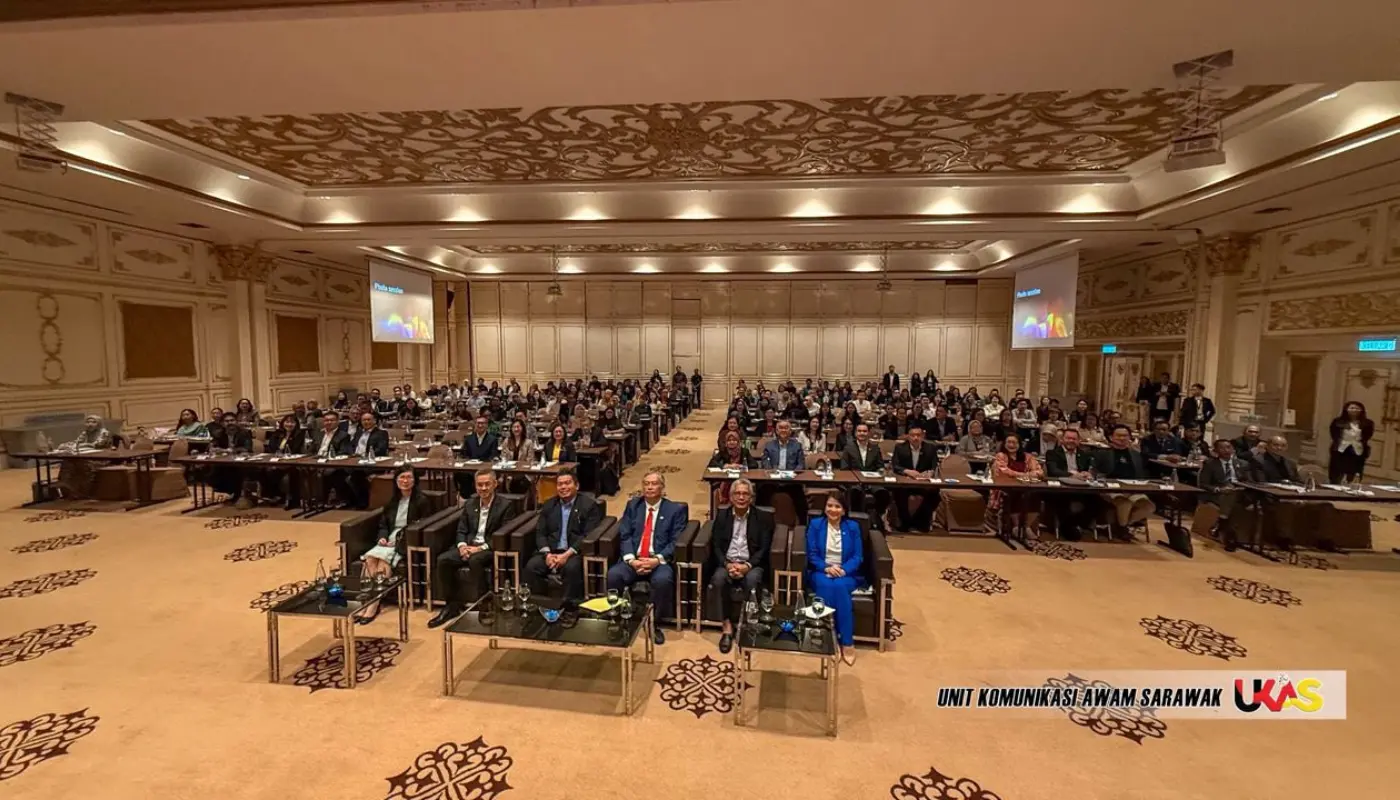KUCHING – The Sarawak Government has called for the full utilisation of artificial intelligence (AI) to transform business organisations and state-owned enterprises (SOEs), aligning with the state’s Post-COVID-19 Development Strategy (PCDS) 2030.
Speaking at the opening of the Tax and Digital AI Symposium on Wednesday, Sarawak Financial Secretary Dato Sri Dr Wan Lizozman Wan Omar said AI is no longer a futuristic concept but a present-day tool reshaping decision-making, data analysis, and resource optimisation.
He explained that PCDS 2030 provides a strategic framework to build secure digital infrastructure and drive public sector transformation, with the goal of fully digitising 1,106 government services by 2030.
“Through AI, we can predict revenue trends, identify tax compliance patterns and automate routine tasks, thus freeing up human capital for strategic innovation,” he said.
Dr Wan Lizozman highlighted that the global digital economy is projected to reach trillions of dollars, presenting both opportunities and challenges for governments and SOEs.
Among the opportunities, he noted that Sarawak’s SOEs in energy, infrastructure, and services could leverage AI for predictive asset maintenance, supply chain optimisation, and personalised services.
This would enable them to evolve from traditional service providers into smart service platforms.
He also stressed the importance of data-driven policies, which allow governments to move beyond traditional models and make evidence-based decisions.
“From infrastructure investment to the distribution of social programmes, every ringgit must be spent with maximum impact,” he added.
However, Dr Wan Lizozman cautioned that the adoption of AI comes with challenges, particularly the skills gap between public and private sector workforces. He emphasised the need for training to ensure employees can work effectively alongside AI systems.
Ethical considerations were also underscored, including data privacy, algorithmic bias, and inclusivity. He stressed that digital transformation must be implemented responsibly, ensuring that no Sarawakian is left behind.
The symposium served as a platform to discuss how AI can be harnessed to strengthen governance, improve efficiency, and deliver better outcomes for the people of Sarawak.
Officials and industry leaders agreed that embracing AI is essential for achieving the state’s vision of becoming a digitally advanced economy by 2030.








